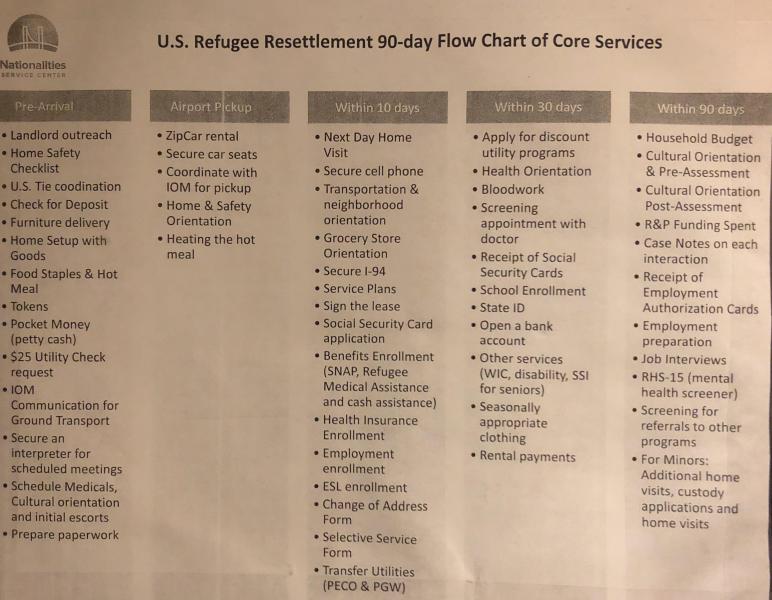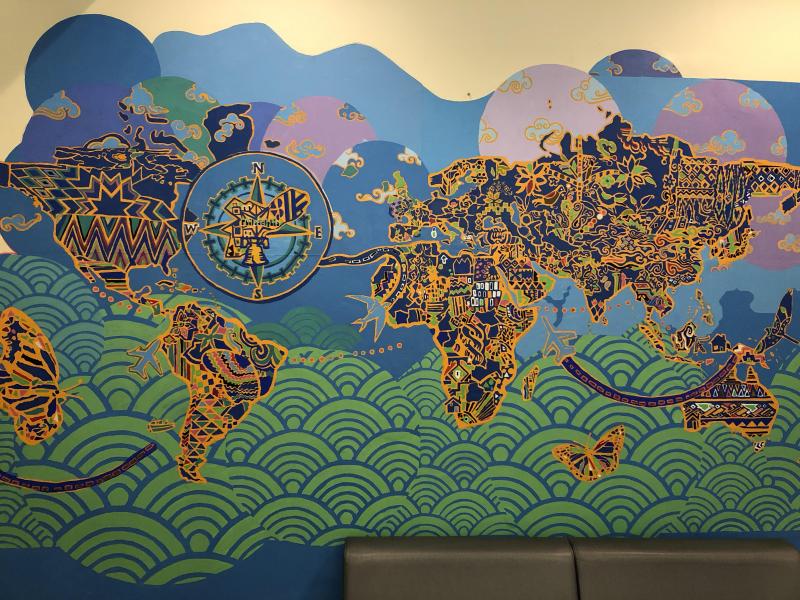Posted on: February 4, 2019Philadelphia
“No, I think we’ll wait to go to the doctor on Monday with the baby” the father informs me over the phone. His eighteen month-old has been constipated for over a week. It’s Thursday, and this father is telling me that he wants to wait another four days before the baby sees a doctor.
“Listen, the doctor’s office told me that your baby really, really should see a doctor today. I am sending you the address to the St. Christopher’s Hospital ER, and I think you should go today if you can’t make it all the way to the doctor’s office,” I explain, “and if you need help getting there from home, I can send you directions, too.”

“Why can’t the doctor just give us medication and we can go pick it up at the pharmacy?” he asks me.
“The doctor can’t give you any medication unless they have seen your baby in person, because they can’t tell based off of a conversation why she is constipated. Can you go to this ER today if you can’t go to the doctor’s office?”
There was a brief pause on the other end. “I’m going to talk to my wife and then we will see. Send me the address.” He hangs up.
I send my client the address to the ER and call him back a few minutes later.
“Hello Katie, we cannot go today, my wife, you see, her foot has a large pimple and she cannot walk. The baby will not be happy with just me, because she likes my wife better. And it is too cold out to walk far. Plus we do not even have the bus pass to go to the hospital. I do not have a job yet and so I cannot get a bus pass. We will go to the family doctor tomorrow or the day after when my wife can walk.”
It sounds like there is a lot going on right now. Your wife is in a lot of pain with the blister on her foot, and you really need your wife to come with you so it’s easier with the baby. And it is very cold out, and not fun to wait in the cold for the bus. I hear you. It sounds like there are a lot of reasons why it is difficult for you to go to the doctor today.
“But the doctor’s office really wants your baby to see a doctor today. They also don’t have any openings tomorrow, so they cannot see you tomorrow. The day after is Saturday, and the office is closed.”
“What about the next day?”
“On Sunday, the office is still closed.”
“Ok, then let’s go on Monday” he tells me.
At this point, we are at an impasse, and I feel frustrated. “I really am going to encourage you to try your best to make it to the address I sent you. Can you at least try to go tomorrow if it’s not possible to go today?”
“Yes, yes I will try my best for today, but tomorrow we will go if not today.”
After this conversation, I call the doctor’s office back and ask them if a nurse or doctor can please call the father to encourage him to take his baby to the ER today. The doctor’s office tells me that they will have a nurse call the father back to give him more detail than I can provide as to why it is so important for him to take his baby to the hospital as soon as possible.
 As a Health Team member at the Nationalities Service Center (NSC), a comprehensive service provider for immigrants and refugees, one of my main roles consists of providing clients like this father with the information that they need to navigate the healthcare system in the U.S. While we cannot provide medical advice to clients, we give our clients more basic, but necessary, information, such as when a doctor’s office is open or closed, and when somebody can go to an appointment. We also spend lots of time teaching clients how to call a pharmacy to request a medication refill, or schedule a doctor’s appointment to get a medication prescribed. Additionally, we must help our clients to learn the lesson that there are limits to the healthcare system, including when somebody can and cannot get appointments -- as frustrating as it might be for our clients, there are times when people must work around a doctor’s availability. If they cannot make the doctor’s appointment fit in their schedule, our clients might have to wait awhile before they can see a doctor.
As a Health Team member at the Nationalities Service Center (NSC), a comprehensive service provider for immigrants and refugees, one of my main roles consists of providing clients like this father with the information that they need to navigate the healthcare system in the U.S. While we cannot provide medical advice to clients, we give our clients more basic, but necessary, information, such as when a doctor’s office is open or closed, and when somebody can go to an appointment. We also spend lots of time teaching clients how to call a pharmacy to request a medication refill, or schedule a doctor’s appointment to get a medication prescribed. Additionally, we must help our clients to learn the lesson that there are limits to the healthcare system, including when somebody can and cannot get appointments -- as frustrating as it might be for our clients, there are times when people must work around a doctor’s availability. If they cannot make the doctor’s appointment fit in their schedule, our clients might have to wait awhile before they can see a doctor.At the same time, regular interactions like these remind me that it’s a privilege to be able to prioritize your health. Some of our refugee clients at NSC have lived their entire lives without going to doctor’s appointments regularly, and therefore going to see the doctor is often not a top priority. When seemingly basic aspects of life get in the way, it’s not an easy ask of us when we try to convince our clients to trek across the city to make a follow-up appointment, or even to make a sick visit that, in a client’s opinion, isn’t urgent.
At NSC, both NSC clients and Health Team members are constantly operating on a learning curve. On the Health Team, we have conversations every day riddled with subtle information about the healthcare system in the U.S. that we are trying to relay to our clients. And our clients, in daily conversations, are constantly teaching us that there are many, many other things to take into consideration, besides a person’s health, when we are trying to teach them about navigating the healthcare system.
